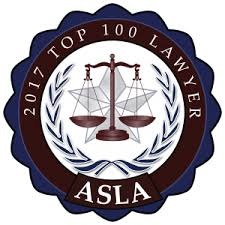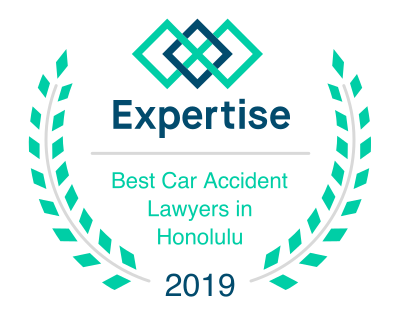|
Hawaii Negligence Cases
Selected Cases from 1989 to 2004 -
Grouped by court and by date (in reverse order):
Hawaii Intermediate
Court of Appeals
Gump v. Walmart Stores, Inc. Case No. 21670 Dated: 11/17/1999
When Gump was leaving Wal-Mart's Kailua-Kona store, she slipped on a french fry, fell, and was injured. A jury found Wal-Mart negligent. The ICA rejected Wal-Mart's argument that the maximum ten-minute duration of the hazard, when coupled with an acknowledged lack of evidence regarding the actual duration, was sufficient to prevent notice of the hazard to Walmart. In light of intended operations of having a fast food restaurant in their store, the court apparently found that they had ongoing notice that there would be food and drink spilled on their floor.
Note: the ICA opinion in this case was depublished by the Hawaii Supreme Court on June 26, 1998 -
City Express, Inc. v. Express Partners, et al. Case No. 17351 Dated: 02/20/1998
The ICA concluded that the Bonded Investment Co. case (54 Haw. 385 (1973)) did not prohibit Express Partners' use of the plaintiff's expert witness against the other defendants. However, when City Express settled, it assigned its expert witnesses to co- defendants, Architects 2, Inc., Sako, and Sonoda, attempting to preclude Express Partners from using them. The Hawaii Supreme Court apparently found that the assignment was valid and that in the absence of the plaintiff's experts' testimony - Express Partners' claims for architectural malpractice against the other defendants failed.
Ozaki, et al. v. Assoc. of Apt. Owners of Discovery Bay, et al. Case No. 19194 Dated: 01/22/1998
The court held that HRS sec. 663-31 (Hawaii's modified comparative negligence statute) applies only to actions sounding wholly in negligence. Where negligence combines with other grounds of liability to cause injury to a plaintiff, pure comparative negligence principles apply. In July, 1990, the decedent was murdered by her paramour in her Discovery Bay condominium. The court held that where the intentional tortious conduct of the defendant Sataraka, the negligent conduct of the defendants of the AOAO Discovery Bay and the security guard, and the negligent conduct of the decedent, all combined to cause this person's death, liability must be apportioned among them in proportion to their respective faults. The court further held that HRS sec. 663-10.9(2) did not abolish the joint and several liability of joint tortfeasors for economic and noneconomic damages in actions in which an intentional tort is at least one of the grounds on which liability is found. The court concluded that AOAO Discovery Bay and the security guard and Sataraka were jointly and severally liable for the plaintiffs' damages.
Honbo, et al. v. Hawaiian Insurance & Guaranty Co., Ltd., et al. Case No. 19865 Dated: 11/28/1997
The plaintiff was involved in two separate car accidents in 1986. In 1988 he was informed that he had exhaused his no-fault insurance benefits for one accident; and in 1989, he was informed that he had exhaused his benefits for the other accident. In March, 1990, plaintiffs sued each driver in a single lawsuit and reached a settlement agreement in 1992. Plaintiffs subsequently sued defendants seeking relif of uninsured motorist benefits and damages for bad faith. The court held that the plaintiffs' uninsured motorist claim and their bad faith claim were time barred by the two-year statute of limitations in HRS sec. 294-36(a).
Torres , et al. v. Northwest Engineering Co., et al. Case No. 15953 Dated: 11/25/1997
This lawsuit arises from an industrial accident in which a crane manufactured and sold by defendant tipped over and killed. The court concluded that the circuit court improperly granted judgment notwithstanding the verdict as to the plaintiffs' claim for breach of express warranty; that pure comparative fault principles should be applied to reduce any recovery by plaintiffs for breach of express warranty; that the circuit court improperly directed verdict for Northwest as to the plaintiffs' claim that Northwest breached an implied warranty of merchantability; and that wrongful death and negligent infliction of emotional distress damages are derivative in nature, and plaintiffs cannot recover such damages unless Torres had a viable cause of action.
Kohala Agriculture, et al. v. Agro-Pacific Development, Inc., et al. Case No. 18368 Dated: 11/10/1997
The court held that the tort of negligent misrepresentation, as set forth in the Restatement (Second) of Torts sec. 552, applies in actions against an accountant for the negligent obtaining and/or communication of information contained in an audit report. An accountant may be held liable to third parties under section 552(2) for negligence in the preparation of an audit report.
Glover v. Grace Pacific Corp., et al. Case No. 18317 Dated: 10/21/1997
The court held that where the plaintiff voluntarily consents to be examined by a physician selected by the defendant, the plaintiff waives his or her right to require that a motion for an examination order be filed under HRCP Rule 35(a). The court held that while an order may condition HRCP Rule 37(b) sanctions on the offending party's failure to satisfy a condition contained in the order, the order in the instant case was not enforceable because the condition that Glover reschedule an independent medical examination with a physician retained by the defendant was imposed after the time set for satisfying the condition had already expired.
Budget Rent-A-Car Systems, Inc. v. Ricardo, et al. Case No. 19738 Dated: 06/16/1997
Ricardo, driving a car that he had rented from Budget collided with a telephone pole, resulting in injuries to his passenger. Budget filed this action Seeking a declaratory judgment that it had no obligation to defend or indemnify Ricardo for any claims arising out of the accident because he was drunk at the time. The court held that Budget's attempt to limit its liability through an intoxication restriction in its rental agreement violated public policy. The court also held that because Budget is not an insurer as defined in HRS sec. 431:10-103(5), the trial court erred in granting attorney's fees and costs under that statute.
Ditto v. McCurdy, et al. Case No. 17346 Dated: 06/09/1997
The plaintiff visited an ear, nose, and throat specialist, who was also a cosmetic surgeon, for breast implant surgery. Complications ensued, culminating in the removal of both implants. The plaintiff filed a fraud and negligence claim against the doctor and his medical assistant. The Court held, inter alia, that (1) the trial court's post verdict review of the punitive damages award satisfied due process; (2) there was ample evidence to support the punitive damages award; (3) a motion for prejudgment interest is a motion to alter or amend a judgment under Hawaii Rules of Civil Procedures Rule 59(e) and must be served no later than ten days after entry of the judgment; (4) prejudgment interest does not require purposeful delay; (5) prejudgment interest may not be awarded on punitive damages; (6) a signed consent form, standing alone, does not satisfy the doctrine.
Higa v. Lino Case No. 16166 Dated: 09/10/1996
This opinion decides that: (1) uninsured motorist benefits constitute "optional additional benefits" for the statute of limitations purposes under HRS 294-36(b)(2) and (2) Plaintiff's suit was filed in a timely manner and was not barred by the statute of limitations under Hawaii's no-fault laws.
Stevens v. Kirkpatrick, et al. Case No. 17019 Dated: 07/09/1996
This case decided that: (1) the dismissal order actually granted summary judgment and not a motion to dismiss; (2) plaintiff had no personal injury claim at the time of the first action because her medical expenses did not meet the medical-rehabilitative limit set by Hawaii's no-fault law; and (3) because her claim for personal injuries did not arise until her medical bills met this limit, plaintiff did not violate the law against splitting causes of action.
Page v. Domino's Pizza, Inc. Case No. 16525 Dated: 12/12/1995
Incidents regarding other stools which "fell apart," "came apart," or "broke" are substantially similar to the incident in question, such that testimony thereon is admissible. The causation between the prior incidents and the plaintiff's accident need not be identical. The critical issue is whether the failure of the other two stools and the one on which the plaintiff sat posed a risk of injury for anyone sitting on them.
Dunbar v. Thompson, et al. Case No. 16135 Dated: 08/14/1995
Where a defendant's liability to a personal injury plaintiff is established, a jury verdict which awards the plaintiff special damages but not general damages for pain and suffering is generally regarded as improper. The court determined that the trial court erred when it denied the plaintiff's motion for a new trial because the jury's answers to the questions posed by the special verdict form regarding Pentagram's liability were inconsistent, and the jury's award to the plaintiff of special damages but no general damages was improper.
Bernard v. Char Case No. 15634 Dated: 05/19/1995
Contrary to the dentist's contention, the plaintiff was not required to adduce expert testimony as to the existence and extent of a dentist's duty to inform a patient of the risks of a tooth extraction surgery in order to establish the duty element of a medical negligence action based on the doctrine of informed consent. Because the modified objective test maintains a basically objective structure, a plaintiff seeking to establish causation is not required to testify that he or she would have foregone treatment if disclosure of the risks had been made.
Carlos, et al. v. MTL, Inc., et al. Case No. 15691 Dated: 10/31/1994
In order to invoke the doctrine of res ipsa loquitur in a particular case, a plaintiff must first establish the presence of three conditions: (1) the event must be one which ordinarily does not occur in the absence of someone's negligence; (2) it must be caused by an agency or instrumentality within the exclusive control of the defendant; and (3) it must not have been due to any voluntary action or contribution on the part of the plaintiff.
Richards v. Kailua Auto Machine Service Case No. 15957 Dated: 09/19/1994
While HRCP Rule 52(a) should be strictly followed, findings of fact by the circuit court are not jurisdictional and the appellate court may proceed where the record is clear and findings are unnecessary. When personal property is damaged rather than destroyed, the traditional starting point in measuring damages is the depreciation rule, which gives the injured party the difference between the value of the chattel immediately before damage and the value immediately after, that is, the depreciation in value caused by the damage.
Wagatsuma v. Patch Case No. 16037 Dated: 08/26/1994
Held that a swimming pool manufacturer's duty to put a safe product on the market includes the duty to take such measures in manufacturing and marketing the pool as will reasonably protect against injury to young children arising from their use of the pool. Genuine issues of material fact exist; judgment vacated.
Myers v. South Seas Corporation, et al. Case No. 15086 Dated: 05/14/1992
An appellate court will order a new trial when the jury's answers to interrogatories posed on a special verdict form are irreconcilably inconsistent.
Hawaii Supreme Court:
Bynum v. Magno Case No. 25854 Dated: 11/18/2004
(Moon, C.J. dissenting, joined by Levinson, J.) Pursuant to Hawaii Rules of Appellate Procedure Rule 13(a), Justice Acoba writing for the court's majority, answered the following certified questions by the Hawaii federal district court: where a plaintiff's healthcare expenses are paid by Medicare and/or Medi-Cal, does the discounted amount paid to a healthcare provider by Medicare and Medi-Cal constitute the amount that should be awarded as medical special damages to a plaintiff in a negligence action? In this circumstance, is evidence of amounts billed in excess of the amount paid irrelevant and inadmissible? The majority answered both questions "no." Writing in dissent, joined by Justice Levinson, Chief Justice Moon argued that both questions could be answered in the affirmative by applying existing Hawaii precedential special damages law. When a health care provider writes off a portion of a Medicare and/or Medicaid beneficiary's medical expenses, the beneficiary does not incur any liability for that amount. Therefore, the beneficiary's recovery of the reasonable value of medical services should not include the written-off amount as compensatory special damages.
Miyamoto et al v. Lum et al Case No. 24288 Dated: 02/06/2004
A new trial is warranted where a special verdict's finding that a motorist was not the legal cause of the plaintiff's injuries was irreconcilably inconsistent with the jury's award of damages.
Wemple et al v. Dahman et al Case No. 21497 Dated: 01/30/2004
A private roadway is not a county highway -- thereby subjecting the county to liability for injuries incurred thereon- where the county has not expressly accepted the private roadway, as required by HRS section 264-1. The fact that a road is recorded on a plat does not, in itself, establish the property owner's lack of control of the property. However, HRS section 265A-1, does not require the counties to take over private roadways. Moreover, contrary to the ICA's conclusion, the County Council's Resolution No. 81-252, indicates an intent to keep control of private roadways in the hands of private owners: the County does not decide when and whether to maintain private roadways, but does so only at the request of the property owners. (Reverses ICA decision.)
McKenzie v. Hawaii Permanente Medical Group et al. Case No. 25268 Dated: 06/10/2002
(1) A physician does not owe a duty to non-patient third parties injured in an automobile accident caused by the patient's adverse reaction to a medication that is not a controlled substance and negligently prescribed by the physician three days earlier where the alleged negligence involves such "prescribing decisions" as whether to prescribe the medication in the first instance, which medication to prescribe, and the dosage prescribed. (2) A physician owes a duty to non-patient third parties injured in an automobile accident caused by an adverse reaction to the medication prescribed three days earlier where the physician has negligently failed to warn the patient that the medication may impair driving ability and where the circumstances are such that the reasonable patient could not have been expected to be aware of the risk without the physician's warning.
City Express, Inc. v. Express Partners Case No. 17351 Dated: 06/19/1998
Claims in tort by an owner against the architect with whom it contracted for services are barred by the economic loss rule. The court endorsed (1) the growing trend of cases which bar recovery in negligence between parties to a contract where the damages constitute economic loss, and (2) the general rule that parties may contract as they wish, and courts will enforce their agreements without passing on their substance.
O'Connor v. Maui Case No. 19860 Dated: 05/11/1998
The state has no duty to warn of wave conditions off a beach that does not include unnatural conditions. The state and county, as owner and occupier of a beach park, have a duty to warn beach users of extremely dangerous conditions that were not readily apparent to persons of ordinary intelligence, but only if they induced the users into the beach park to engage in recreational activity on the adjoining beach.
Ozaki v. AOAO Discovery Bay Case No. 19194 Dated: 04/14/1998
Where the claim against one defendant is based on intentional tort and the claim against another defendant is based on negligence, the negligence of the plaintiff can give rise to a defense by the negligent defendant under the comparative negligence statute, H.R.S. 663-31. The IAP decision to the contrary was reversed.
O'Neal v. Hammer, et al. Case No. 19275 Dated: 02/25/1998
The plaintiff alleged that the defendants failed to properly inform her of the risks involved in a mandibular advancement surgery. The appellate court determined that the circuit court erred to the extent that it required expert testimony to establish that a dentist owes a duty to disclose the risks or potential complications of surgery. The circuit court erred when it ruled that an orthodontist recommending and participating in a combined treatment plan of orthodontics and surgery need not warn o f the surgical risks; and the circuit court erred in concluding that a physician tendering a second opinion did not have a duty to warn of the risks or surgery.
Mendes v. Hawaii Ins. Guaranty Assoc., et al. Case No. 19932 Dated: 02/11/1998
After being injured in a car accident, the plaintiff settled with the responsible driver's insurance companies and received $70,000 in general damages. The plaintiff informed Hawaii Insurance Group (HIG) and Hawaii Underwriters Insurance Company (HUI) that she intended to seek underinsured motorist benefits under her policy because the damages incurred were in excess of the settlement amount. HUI was declared insolvent and Hawaii Insurance Guaranty Association assumed its obligations. The court determined that Hawaii Insurance Guaranty Association could be sued for the limited purpose of compelling it to perform its statutory duty to deal with covered claims of insolvent insurers. The claims based on alleged bad faith actions of Hawaii Insurance Guaranty's Association's employees, tortious breach of contract or emotional distress were barred.
Kawamata Farms, Inc. v. United Agri Products, et al. Case No. 19201 Dated: 12/11/1997
In a 95-page opinion, the Court affirmed the judgment awarding more than $23 million in damages for crop damage resulting from a manufacturing defect in certain agricultural fungicides. The court rejected the defendants' contention that the circuit court erred by allowing the jury to consider liability based on claims that the Federal Insecticide, Fungicide and Rodenticide Act (FIFRA), 7 u.S.C.S. secs. 136-136y preempted by entering an order partially granting the defendants' motion for partial summary judgment regarding FIFRA preemption issues and an order denying the defendants' motion for partial summary judgment as to breach of warranty claims. The Court also disagreed with the defendants' contention that the circuit court denied them a fair trial. The Court upheld the $1.5 million sanction against the defendants for discovery misconduct.
Ditto v. McCurdy, et al. Case No. 17346 Dated: 11/06/1997
The ICA had held that the trial court abused its discretion when it allowed the plaintiff's expert to testify in rebuttal that Dr. McCurdy did not have the minimum qualifications to perform breast surgery in any Hawaii hospital. This court held that the trial court did not err by admitting such testimony in rebuttal. The court concluded that Dr. McCurdy did not have an affirmative duty to inform Ditto of his qualifications or lack thereof, specifically that he was not a plastic surgeon and that he did not have hospital privileges. The court therefore reversed the jury's finding of fraud and remanded the case with instructions to dismiss the fraud count.
Tabieros, et al. v. Clark Equipment Co., et al. Case No. 17339 Dated: 09/15/1997
This appeal and cross-appeal arose out of a lawsuit which involved allegations of strict product liability and negligent design following injuries sustained by Tabieros when he was struck by a straddle carrier manufactured by Clark while employed by Matson Terminals, Inc. This 120-page decision ultimately affirmed the trial court's judgment in Clark's favor and against Wilson, Tabieros' s common law wife and remanded the case for a new trial (a third trial) of Tabieros's claims against Clark. The court held, inter alia, that the plaintiffs failed to establish that Clark assumed a duty to retrofit the straddle carrier that injured Tabieros. The court held that the trial court erred in instructing the jurors that they could find the straddle carrier defective if it failed to perform as safely as an ordinary user of the product would expect when used in an intended or reasonably foreseeable manner, including reasonably foreseeable misuses.
Lee, et al. v. Corregedore, et al. Case No. 17017 Dated: 10/03/1996
Affirmed summary judgment in favor of the defendant. The appellants maintained that the defendants had a duty to prevent Perreira's suicide. The court found that as an independent, forty-two-year-old adult, Perreira had the freedom of choice to seek or avoid counseling. The counselor at the State's Office of Veterans' Services did not have custody or control over Perreira, and thus, they did not share a special relationship sufficient to impose a duty of care on the counselor to prevent Perreira's suicide. There are strong public policy considerations that weigh against recognizing tort liability for the counselor's failure to prevent Perreira's suicide. The Court further found that HRS chap. 363, Veterans Rights and Benefits, did not create a statutory duty of care.
Dunlea v. Dappen, et al. Case No. 18614 Dated: 09/19/1996
The issue of when a plaintiff discovered, or reasonably should have discovered that she or he was psychologically injured and that the injury was caused by childhood sexual abuse is a question of fact for the jury. The court stated that a reasonable jury could find that Dunlea filed suit within two years of discovering her alleged injuries and the cause of those injuries, given their nature and circumstances, therefore, the motion to dismiss was wrongly granted.
Russell, et al. v. Attco, Inc., et al. Case No. 19338 Dated: 09/11/1996
The "discovery rule" should not prevent the running of a statute of limitations where all that has not been "discovered" by a plaintiff is the identity of the defendant. In this case, the Russells' cause of action accrued on the date of the accident, when the Russells' awareness of the facts necessary for an actionable claim coalesced, that is, when they realized that the placement of the liner caused the plaintiff to trip, fall, and sustain injuries.
Takayama, et al. v. Kaiser Foundation Hospital, et al. Case No. 19237 Dated: 08/30/1996
Following a jury trial, the plaintiff appealed from the judgment in favor of the defendants. The court held that despite the fact that the defense's assertion that the laminotomies were placed far laterally in Takayama's vertebra would have been refuted, if the jury had resolved the factual issue of the physical location of the laminotomies in Takayama's favor, it remained Takayama's burden to establish the physical location of the laminotomies in her spine. Therefore, she was obligated to give all her evidence in support of the issue in the first instance, and would not be permitted to hold back part of her evidence confirmatory of her case and then offer it on rebuttal, or to refrain from resting her case until all the evidence confirmatory of her position was presented.
Jackson v. Metcalf, et al. Case No. 18257 Dated: 07/23/1996
To the extent that HAR sec. 16-23-93 requires application of peer review procedures with respect to the treatment of injuries sustained prior to the effective date of the 1992 no-fault amendments, the court held that the rule was invalid because it exceeds the DCCA's statutory authority.
Touchette v. Ganal, et al. Case No. 19020 Dated: 07/10/1996
This action stemmed from a fire intentionally started by Ganal. The plaintiffs sought damages against Ganal's wife for her negligence in failing to warn plaintiffs of Ganal's severe and extreme emotional and mental distress. The court held that without more, a marital relationship does not alone constitute a "special relation" under section 315 so as to merit the imposition of a duty to warn others or control the actions of a spouse. The court held that the circuit court erred in failing to consider the presence of a duty under Restatement (2nd) of Torts secs. 302, 302A and 302B.
U.S. Steel Corp., et al. (State v.) Case No. 17695 Dated: 06/24/1996
The state brought this action involving the rusting Aloha Stadium because rather that forming a protective patina, the corrosion worsened over time. After a jury trial, the State appealed from the judgment in favor of U.S. Steel. The court held that the "economic loss" rule did not bar the state's negligent misrepresentation claim and that the jury instructions regarding the stat's claim for unfair or deceptive trade practices erroneously stated the law. Therefore, the circuit court's grant of U.S. Steel's motion to dismiss and the judgment in favor of U.S. Steel as to the unfair or deceptive trade practices were vacated.
Hays v. City and County of Honolulu, et al. Case No. 18824 Dated: 05/24/1996
The plaintiff had dove head first into the ocean and suffered serious cervical/spinal injuries that rendered him a quadriplegic. Approximately seven and one-half years later, while watching a television program he learned that a young man who had dove head first off a rocky point into the ocean and was rendered a quadriplegic obtained a multi-million dollar verdict against the city. The plaintiff contacted the attorney who represented that young man and this complaint ensued. The court held that an essential part of an injured plaintiff's duty of diligence regarding the timely prosecution of his or her claim imposed by a statute of limitations to seek legal advice regarding the presence and/or viability of a potential claim; a plaintiff's failure to seek legal advice from an attorney will not alone entitle the plaintiff to respite form a statute of limitations. The court affirmed the order granting summary judgement in favor of the city on the basis that the two-year statute of limitations barred Hay's claim.
Walsh v. Chan, et al. Case No. 17426 Dated: 12/27/1995
Evidentiary decisions based on HRE Rule 401 are reviewed under the right/wrong standard of review. Evidentiary decisions based on HRE Rule 403, which require a judgment call on the part of the trial court, are reviewed for an abuse of discretion.
Bernard v. Char, et al. Case No. 15634 Dated: 10/06/1995
The doctrine of informed consent is to be judged by an objective standard, that is, whether a reasonable person in the plaintiff-patient's position would have consented to the treatment that led to his or her injuries had the plaintiff-patient been properly informed of the risk of the injury that befell him or her.
Carr, et al. v. Strode, et al. Case No. 16079 Dated: 10/05/1995
The dispositive inquiry regarding the physician's duty to disclose in an informed consent case is not what the physician believes his or her patient needs to hear in order for the patient to make an informed and intelligent decision; the focus should be on what a reasonable person objectively needs to hear from his or her physician to allow the patient to make an informed and intelligent decision regarding proposed medical treatment.
Enos, et al. v. Pacific Transfer & Warehouse, Inc., et al. Case No. 18438 Dated: 09/26/1995
Because sanctions under HRCP Rule 11 are imposed only upon "the person who signed" the "pleading, motion, or other paper" and Fukumoto did not sign the motion for examination, HRCP Rule 11 was not applicable to him, and he could not be sanctioned thereunder. In order to facilitate a meaningful and more efficient appellate review, an order imposing sanctions should set forth findings that describe, with reasonable specificity, the perceived misconduct (such as harassment or bad faith conduct) as well as the appropriate sanctioning authority (e.g., HRCP Rule 11 or the court's inherent power).
Shimabuku, et al. v. Montgomery Elevator Company, et al. Case No. 16594 Dated: 09/12/1995
Under the clear language of HRS sec. 386-8, an injured employee, who has previously received workers' compensation benefits, may not dismiss a claim against a third-party tortfeasor without written consent of the employer. The appellees' stipulation to dismiss all claims as to all parties constituted a "release" under HRS 397-8. The court concluded that the employer's subrogation interest outweighed appellees' finality interest in the stipulation dismissing Shimabuku's claims.
Maguire, et al. v. Hilton Hotels Corp. Case No. 17544 Dated: 06/26/1995
Court first determined whether there was a "special relationship" between Donna and the Hilton that might have given rise to a duty to protect against the criminal actions of third parties. In making this determination, sec. 314A of the Restatement (2nd) of Torts provides guidance. If such a relationship exists, then must determine whether the actions of the unknown assailant were reasonably foreseeable to the Hilton. Because Donna was invited to enter the Hilton's premises to provide services that directly benefited the business dealings of the hotel, she was a business visitor of the hotel.
Sato, et al. v. Tawata, et al. Case No. 16388 Dated: 05/19/1995
The court held that, notwithstanding the language of HRS sec. 386-8, disclosure of workers' compensation evidence, including the amount, may be appropriate where some relevant purpose for allowing its admission develops in the trial. Because, on the record, there was a relevant basis for admitting the evidence of Sato's receipt of workers' compensation, and the probative value of the evidence substantially outweighed the danger of unfair prejudice or confusion, the court held that the trial court did not abuse its discretion in admitting the evidence.
Craft v. Peebles, et al. Case No. 16577 Dated: 04/11/1995
In light of the testimony concerning the alternative causes of the plaintiff's symptoms that preceded the plaintiff's cross-examination regarding her drug use, the court held that there was no error under HRE 401 and 403 in admitting the subsequent evidence that indicated that the plaintiff's symptoms may have been linked to her drug use and not solely to her exposure to silicone.
Saranillio v. Silva, et al. Case No. 17036 Dated: 02/07/1995
The common law rule that the release of an employee automatically releases the employer from vicarious liability has been abrogated in Hawaii by the adoption of a version of the Uniform Contribution Among Tortfeasors Act, H.R.S. 663-11 to 663-17. But the employer is not without means to limit its remaining liability to the plaintiff. First, through the operation of HRS 663-14, the claim against the employer is reduced by at least the amount of the consideration the employee paid for the release. Second, the employer retains the right to seek indemnification from its employee. HRS 663-16.
Siangco v. Kasadate, et al. Case No. 16701 Dated: 10/25/1994
Held that the sanctions order at issue failed to satisfy the strict prerequisites of the collateral order doctrine, therefore, the appeal was dismissed for lack of appellate jurisdiction.
Montalvo v. Lapez Case No. 16913 Dated: 10/12/1994
Because legal cause is an element so essential and basic in any case premised on negligence, it is crucial that the jury be properly instructed in order for it to perform its duty as judges of the fact. On remand, the court directed that the jury be carefully instructed to first determine whether Montalvo had fully recovered from any pre-existing condition or whether such condition was dormant or latent at the time of the accident. If the answer is "yes" to this inquiry, then the City would be liable for all damages. If the answer is "no,", then the jury must apportion.
Beatrice Wong-Leong, et al. v. Hawaiian Independent Refinery, Inc., et al. Case No. 16747 Dated: 09/06/1994
The court remanded the case to determine whether Rellamas acted negligently by drinking while aware that he had to drive and whether the act of drinking at his promotion party was within the scope of Rellamas' employment, i.e., whether the party furthered a business purpose sufficient to impose respondeat superior liability. The record provided support for a finding that there was a history and tradition of drinking activities in the Hawaiian Independent Refinery's picnic area, and that this practice benefitted the enterprise.
Richardson, et al. v. Sport Shinko (Waikiki corporation) dba Queen Kapiolani Hotel, et al. Case No. 16492 Dated: 08/29/1994
The timely filing of a tolling motion, pursuant to HRAP 4(a)(4) renders any notice of appeal filed before it null and void. Offer of judgment of $75,000.00 was rejected and at trial, the plaintiffs lost. Sanctions under HAR 26 did not violate due process or article I, sec. 13. Judgment affirmed.
Reyes v. Kuboyama dba Kapaa Liquor and Wine Company, et al. Case No. 15408 Dated: 04/06/1994
Storeowner owed a duty to plaintiff who was injured as a result of riding home with a minor who had consumed beer at a party, but who was not one of two minors who had earlier purchased the beer from the storeowner. HRS sec. 281-78(a)(2)(A) imposes a duty to innocent third parties upon a liquor licensee who sells alcohol to a minor, subject to determinations by the trier of fact on the issue of reasonable foreseeability.
Hao, et al. v. Campbell Estate, et al. Case No. 16581 Dated: 03/04/1994
Hao was seriously injured in a motorcycle racing accident at Hawaii Raceway Park. The Court affirmed the decision granting summary judgment in favor of Campbell Estate on the ground that, as owner and lessor of the land on which the Park was located, it owed no legal duty of care to the Haos. The Court was not willing, under the rubric of a public use exception, to impose a duty on lessors to take measures to protect against injuries occurring in areas not intended to be open to the p because another part of a leased premises happens to be open to the public.
Franks v. City and County of Honolulu, et al. Case No. 15533 Dated: 01/20/1993
Compelling claimants to complete the design professional conciliation panel (DPCP) process under HRS 672-8, even though their claims might be unsuitable for such review would be inconsistent with the purposes and policies of HRS ch. 672. Therefore, claimants may institute an action in circuit court to seek a determination of DPCP unsuitability pursuant to HRS 672-2.1 prior to a decision of the panel.
Kealoha v. County of Hawaii Case No. 15963 Dated: 01/15/1993
Affirmed trial court's ruling (1) that since there is no tort duty on the part of a motorcyclist to wear protective headgear, evidence that Kealoha had not been wearing a helmet at the time of the accident would not be admitted; (2) that the probative value of the evidence that Kealoha had no motorcycle license was substantially outweighed by the danger of unfair prejudice to him. Reversed the trial court's award of attorney's fees since the language of HAR 26(A) is clear and unambiguous in its restriction of potential sanctions to non-prevailing parties who appeal an arbitration award.
Birmingham v. Fodor's Travel Publications, Inc., et al. Case No. 15384 Dated: 07/20/1992
See No. 15263 above for summary description.
Birmingham v. Fodor's Travel Publications, Inc., et al. Case No. 15263 Dated: 07/20/1992
Fodor's, a publisher of travel guides, and the State did not owe the Birminghams a duty to warn of ocean surf conditions. As to the County, there are genuine issues of material fact precluding summary judgment.
Jane Doe v. Grosvenor Properties (Hawaii) Ltd., et al. Case No. 15156 Dated: 03/27/1992
Plaintiff claimed that defendants negligently failed to protect her from being assaulted in the elevator of the Dillingham Transportation Building. Grosvenor and Westinghouse contended that they had no duty to protect plaintiff from the criminal acts of plaintiff's assailant. The Supreme Court agreed.
Thomas and Thomas v. Pang, et al. Case No. 14325 Dated: 05/15/1991
Affirmend trial court's decision entering summary judgment in favor of defendants where court applied Fireman's Rule which is that a professional fire fighter may not recover damages from private party for injuries sustained during the course of putting out a fire even though private party's negligence may have caused the fire and injury.
If
you have suffered serious injuries as the result of an
accident in Hawaii, please feel free to contact
Accident Lawyer Hawaii now for a free evaluation of your case.
|





 Martindale Hubbell - AV rated lawyer - Best Rating Possible
Martindale Hubbell - AV rated lawyer - Best Rating Possible
 Multi-Million Dollar Advocates Forum
Multi-Million Dollar Advocates Forum
 AVVO Top Rated Personal Injury Attorney, 10 of 10
AVVO Top Rated Personal Injury Attorney, 10 of 10
 ATLA Top 100
ATLA Top 100
 Lawyers.com - Rated 5.0 out of 5.0 - Top Rating Possible
Lawyers.com - Rated 5.0 out of 5.0 - Top Rating Possible
 National Trial Lawyers - Top 100 Trial Lawyers
National Trial Lawyers - Top 100 Trial Lawyers
 Million Dollar Advocates Forum
Million Dollar Advocates Forum
 American Society of Legal Advocates - Top 100 - 2017
American Society of Legal Advocates - Top 100 - 2017
 Marquis' Who's Who in the World, Who's Who in America and Who's Who in American Law
Marquis' Who's Who in the World, Who's Who in America and Who's Who in American Law
 AVVO Clients' Choice Personal Injury Lawyer
AVVO Clients' Choice Personal Injury Lawyer
 Expertise - Best Car Accident Lawyers in Honolulu 2019
Expertise - Best Car Accident Lawyers in Honolulu 2019
 Best Attorneys in America - Life Charter Member
Best Attorneys in America - Life Charter Member






